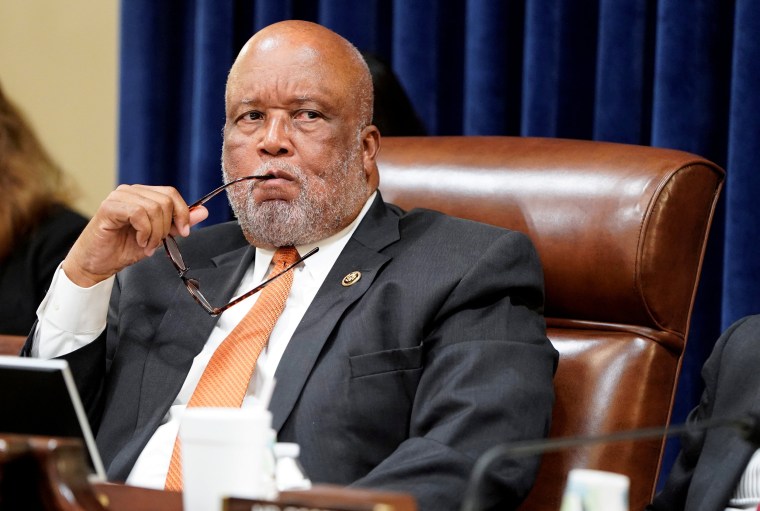The chairman of the House committee investigating the Jan. 6 riot at the Capitol excoriated a former Trump Justice Department official on Friday over his refusal to answer questions about the attack during a scheduled deposition.
Jeffrey Clark, a former acting head of the Justice Department's civil division who played a key role in then-President Donald Trump’s effort to overturn the 2020 election, frustrated members of the committee when he arrived on Capitol Hill with a 12-page letter from his attorney, obtained by Politico, explaining his refusal to testify. The letter, which included a statement from attorneys representing Trump in his lawsuit against the committee, argued that executive privilege prevented Clark from providing testimony.
Harry MacDougald, Clark's attorney, wrote that his client wants to wait until Trump's lawsuit challenging the committee’s power to access certain White House documents makes its way through the courts.
The panel’s chairman, Rep. Bennie Thompson, D-Miss., rejected Clark's executive privilege claim, saying the committee needs "the information that he is withholding and we are willing to take strong measures to hold him accountable to meet his obligation.”
“Mr. Clark’s complete failure to cooperate today is unacceptable,” Thompson said in a statement Friday. “He has a very short time to reconsider and cooperate fully.”
A nearly 400-page report released by the Senate Judiciary Committee in October laid out a detailed timeline of Trump’s campaign to pressure Justice Department officials to help him try to reverse President Joe Biden’s victory. The report’s findings are based on testimony from three former Justice Department officials, as well as documents and emails.
The Senate report said Trump wanted to replace Jeffrey Rosen, then the acting attorney general, with Clark, who devised a strategy with Trump for the Justice Department to intervene in Georgia’s appointment of presidential electors and to use the model in other states. Rosen and Richard Donoghue, then the acting deputy attorney general, rejected Clark’s proposal, the report said.
The Jan. 6 committee — composed of seven Democrats and two Republicans — has already recommended contempt charges for a Trump ally who refused to cooperate with its investigation. The panel voted unanimously in October to advance a measure to refer former Trump adviser Steve Bannon to the Justice Department for criminal charges of contempt of Congress for refusing to cooperate with its investigation. The House then passed a resolution, largely along party lines, asking the Justice Department for criminal prosecution in the matter.

